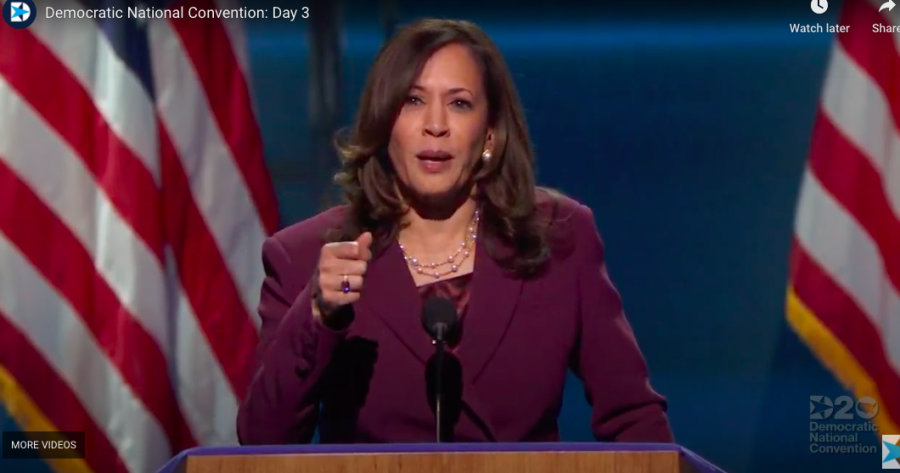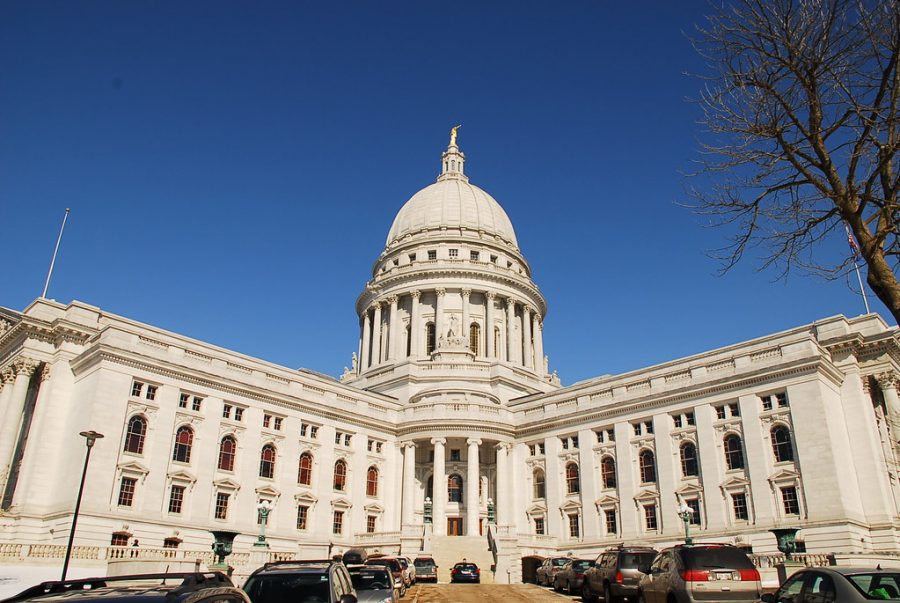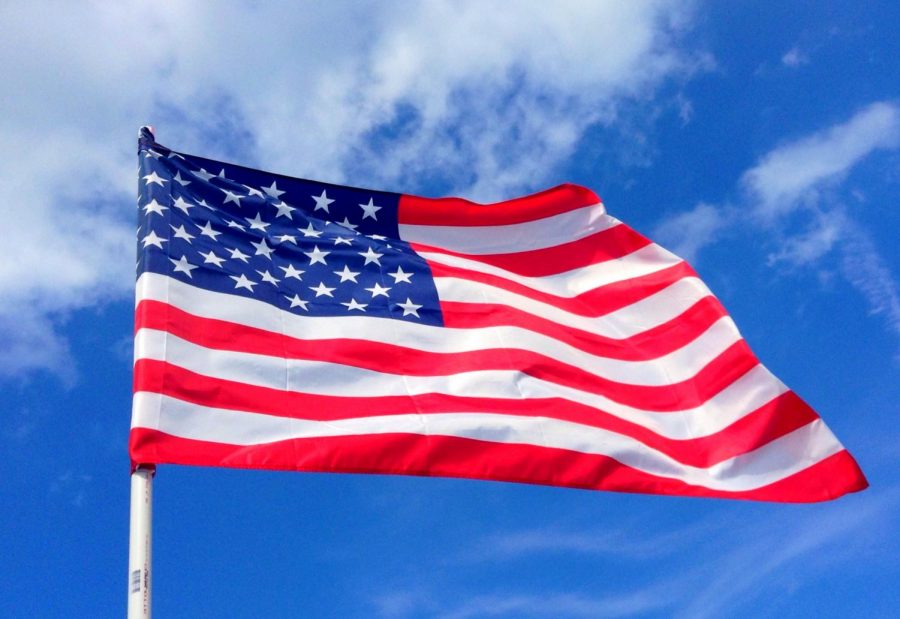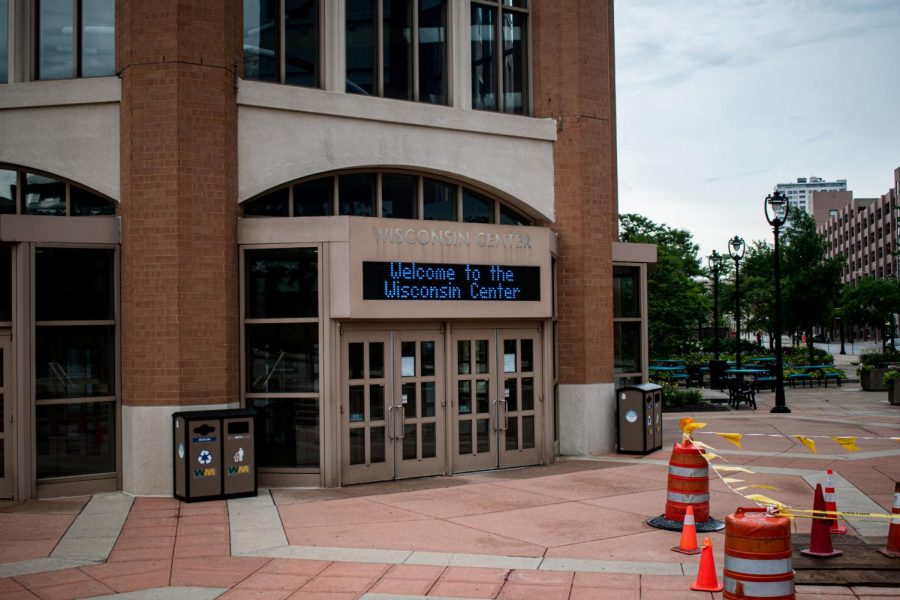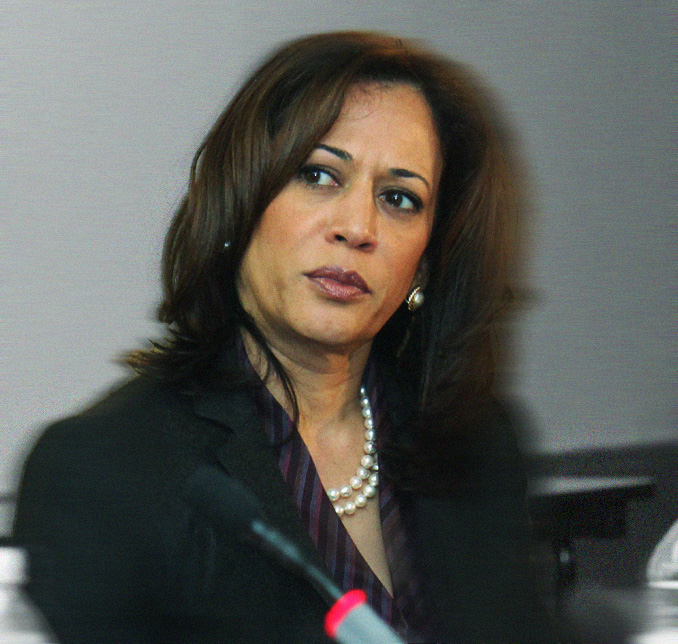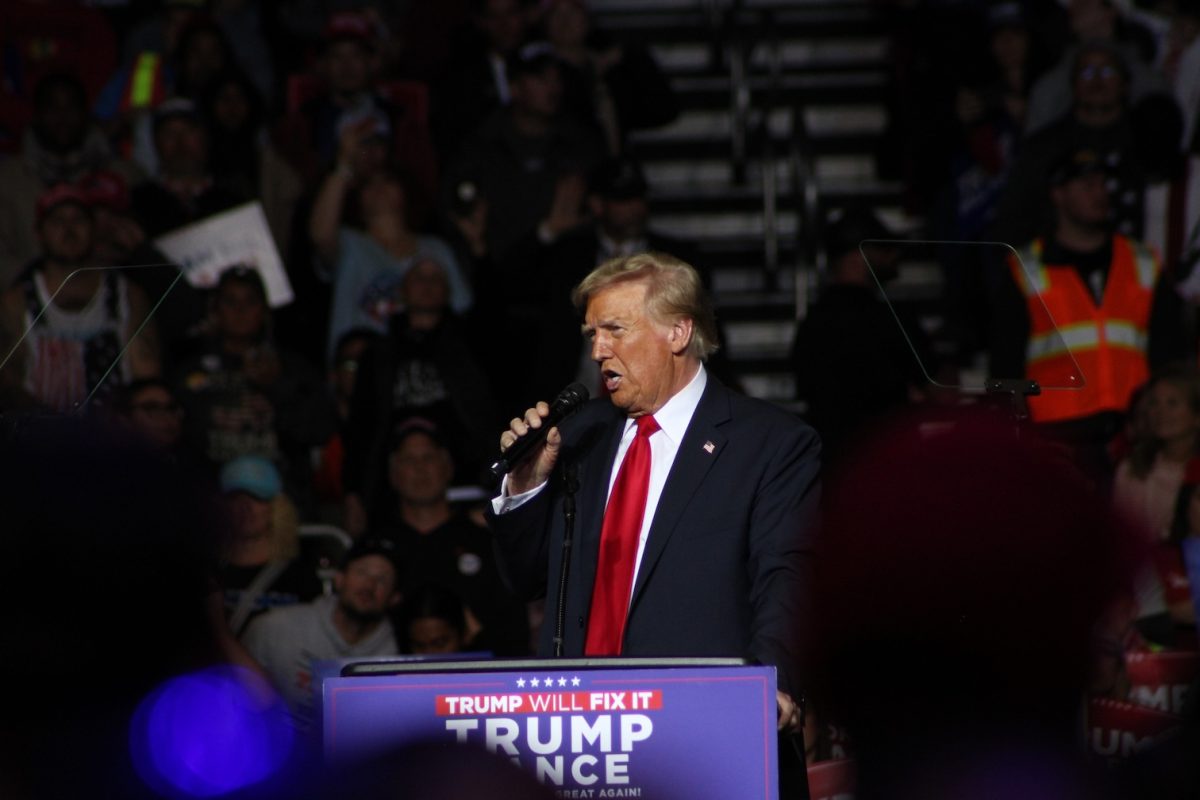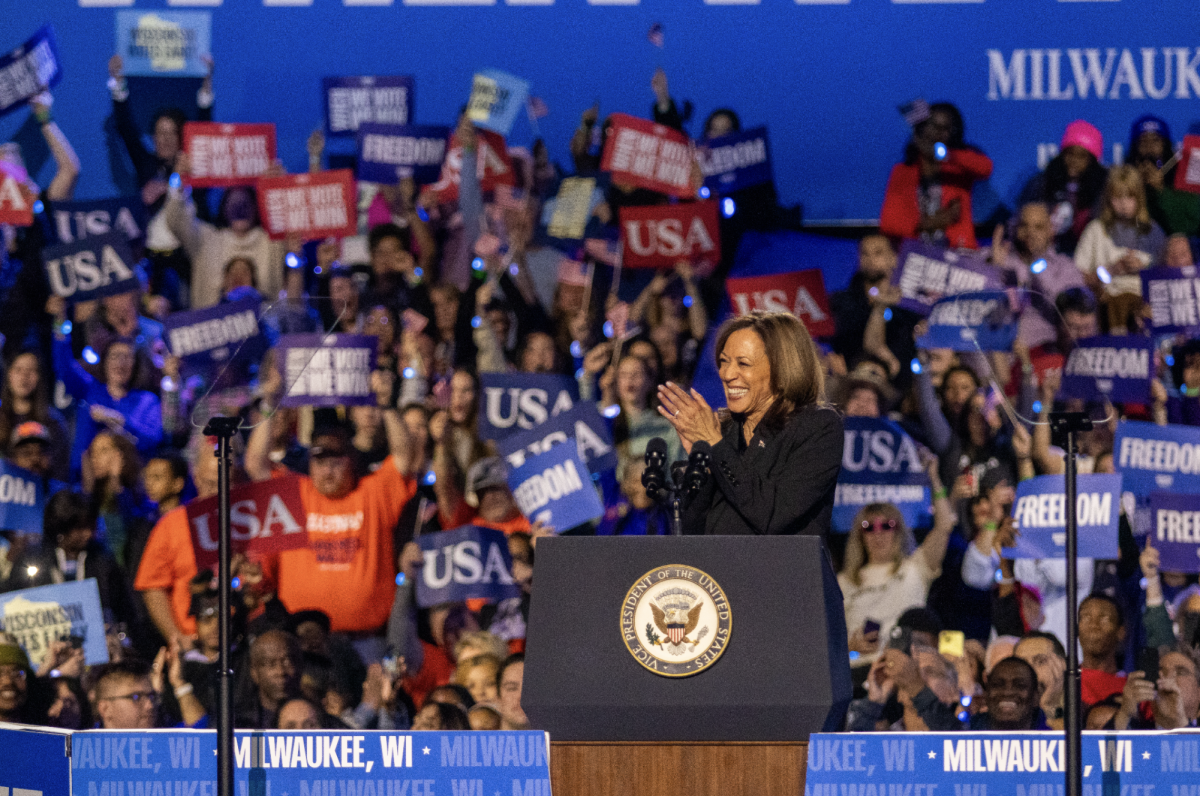Senator Kamala Harris officially accepted her nomination as running mate to Joe Biden during her speech on the third night of the Democratic National Convention, Aug. 19. Speaking at the both the beginning and end of the night, Harris focused on community and fighting for justice, sharing personal stories.
Harris becomes the first Black and South Asian woman to be nominated to the ticket of either major party. Democratic Presidential nominee Joe Biden announced Harris as his running mate Aug. 11. She was a United States Senator from California.
Harris spoke briefly at the beginning of the night to highlight the importance of creating a voting plan. She noted obstacles and misinformation that have made worked to make voting harder this election, like experiencing delays with mailing in ballots in November.
Voting has been complicated by COVID-19, raising concerns about sending a large number of people to the polls. Mail-in absentee voting will be permitted the year, though each state will have its own rules.
“Why don’t they want us to vote? Why is there so much effort to silence our voices?” Harris questioned. “And the answer is because when we vote, things change. When we vote, things get better. When we vote, we address the need for all people to be treated with dignity and respect in our country.”
Harris encouraged people to create a voting plan before introducing the night’s moderator, Kerry Washington.
Harris returned to the stage to officially accept her nomination as Biden’s running mate and close out the night, focusing on the building blocks of the present and hopes for the future.
She opened her speech noting the success of those before her who have organized and fought for such things as voting rights, democracy and opportunity. She pointed specifically to women, noting the hundredth anniversary of the passing of the 19thAmendment.
“Women like Mary Church Terrell and Mary McCleod Bethune. Fannie Lou Hamer and Diane Nash. Constance Baker Motely and Shirley Chisholm,” Harris listed, who were suffragettes. “We’re not often taught their stories. But as Americans, we all stand on their shoulders.”
Harris then shared a personal story of the words and values her mother, Shyamala Gopalan Harris taught her. After her parents split when Harris was five, Harris’s mother raised her and her sister, Maya, largely on her own. Harris said her mother taught her to be a strong, proud Black woman, to prioritize family and to fight for justice with compassion. She added that it is with commitment to these values that she accepts the nomination.
“And to a vision passed on through generations of Americans – one that Joe Biden shares. A vision of our nation as a Beloved Community – where all are welcome no matter what we look like, where we come from, or who we love.”
Harris emphasized the image of coming together to fight and celebrate on issues of human worth, compassion, dignity and respect. She then pointed to President Trump’s failings.
“Today … that country feels distant,” Harris said.
Harris pointed to the losses that the United States has sustained due to COVID-19 and the disproportionate effect it has had on Black, Latino and Indigenous communities due to structural racism. More than 170,000 deaths have been recorded in the United States.
“This virus has no eyes, and yet it knows exactly how we see each other – and how we treat each other,” Harris said.
Her speech then turned to Joe Biden and the vision they share for the future of the U.S. While chaos, incompetence and callousness has misled the people, the U.S. deserves better, said Harris.
“Right now, we have a president who turns our tragedies into political weapons,” said Harris. “Joe will be a president who turns our challenges into purpose.”
Harris noted Biden’s dedication to family as well as his success in politics through a story of her friendship with Biden’s late son, Beau, with whom she worked while they served as Attorneys General.
She outlined Biden’s vision for rebuilding the economy, handling COVID-19 and addressing racial injustice.
“That’s the vision that our parents and grandparents fought for. The vision that made my own life possible. The vision that makes American promises – for all its complexities and imperfections – a promise worth fighting for.”
Stumbling and shortcomings are inevitable but promises of a better future are evident in the work done by those working on the front lines of COVID-19, said Harris. With this, Harris emphasized the power of the people to come together and create change through action and voting. She said she pulls inspiration from the new generation’s leadership and values of decency, fairness, justice and love. Harris added that it is the younger generations that will ask what current generations did.
“They will ask us, what was it like?” Harris said. “And we will tell them. We will tell them, not just how we felt. We will tell them what we did.”
This story was written by Amanda Parrish. She can be reached at amanda.parrish@marquette.edu.

